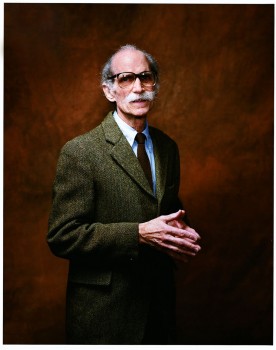Anthony Amsterdam '57 Honored for Fighting Against Capital Punishment

Details
It was 1972 when Anthony Amsterdam '57 helped make history.
That year, working with the NAACP Legal Defense Fund, attorney Amsterdam argued and won the now famous case known as Furman v. Georgia, in which the Supreme Court ruled on the requirement for a degree of consistency in the application of the death penalty. The outcome of this case led to a four-year moratorium on executions in the U.S.
Furman v. Georgia was just one blow struck by Amsterdam in his long struggle to eradicate capital punishment. In January, the New York University professor of law was honored for his body of work with the Lifetime Achievement Award from the National Coalition to Abolish the Death Penalty.
“This isn't the sort of issue that can be personalized,” says Amsterdam of the honor.“I see this as more of a collective award to a community, a recognition of a collaborative effort by lawyers and lay people.”
As a lawyer in the 1960s, Amsterdam began opposing the death penalty when he explored the racial dimensions of capital punishment.“The death penalty was being applied in a racially discriminatory manner,” he says.“It was disproportionately affecting African Americans.” He found that it wasn't only ethnic minorities who were adversely affected by the system:“It was all of society's pariahs—the economic underclass, strangers to communities, the mentally unbalanced. They were cycled into a life of crime, ripped up and thrown away by society.” After adding up the facts, Amsterdam says he felt“an obligation to attack the institution of the death penalty.”
Amsterdam notes that the fight against capital punishment has been a lengthy one, dating back to the late 1700s, when the Society of Friends in Philadelphia formed the first anti-death penalty organization. Throughout the last century, the movement has seen its share of high and low points.“Sometimes there are opportunities to knock out statutes across states, like we did in Furman v. Georgia,” says Amsterdam.“But it's usually a trench fight, involving individual cases and defendants.”
He sees good news in recent statistics: The number of U.S. death sentences has declined from 328 in 1994 to 106 in 2009.“This indicates that juries are having doubts and asking questions,” he says.“They are sensitive to the problems inherent in the system.”
-Brenna McBride



